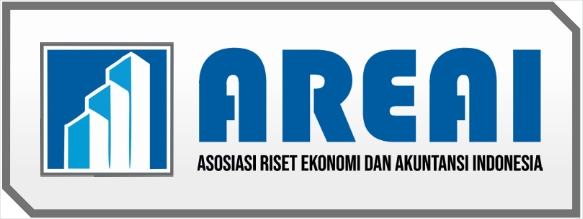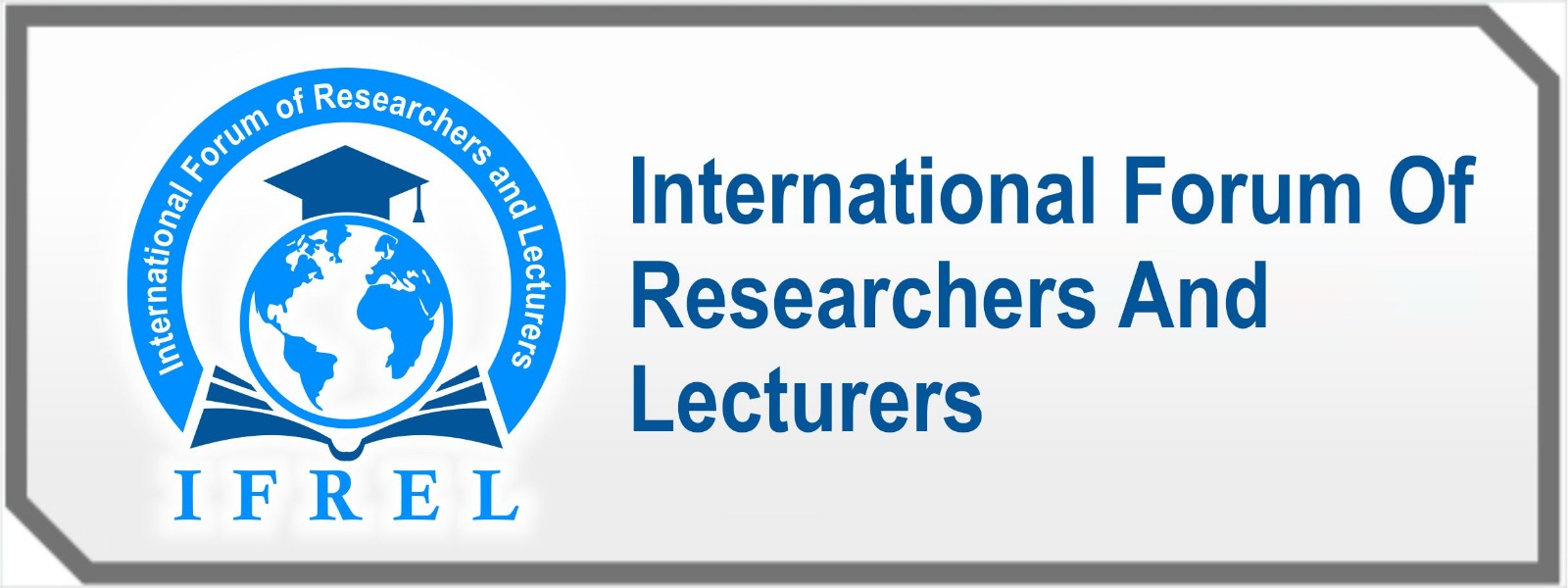Efforts To Improve Employee Performance Through Incentives, Work Skills, And Intrinsic Motivation, With Organizational Commitment As An Intervening Variable
Study Of CV. Mita Furniture Jepara Employees
DOI:
https://doi.org/10.55606/iceb.v1i1.359Keywords:
Incentives, Work Skills, Intrinsic Motivation, Organizational Commitment, and Employee PerformanceAbstract
This study aims to analyze the effect of incentives, work skills, and intrinsic motivation on employee performance either directly or indirectly through organizational commitment on CV. Mita Funiture Jepara. The population used in this study were all employees of CV Mita Furniture Jepara, and the number of samples used was 83 respondents, with the sampling technique of the saturated sample method or the census method. The data source used is primary data, with questionnaire data collection method. The analytical technique used is path analysis and Sobel test. The results of the research analysis show that incentives have a positive and significant effect on organizational commitment, work skills have a positive and significant effect on organizational commitment, intrinsic motivation has a positive and significant effect on organizational commitment, incentives have a positive and significant effect on employee performance, work skills have a positive and significant effect on organizational commitment. employee performance, intrinsic motivation has a positive and significant effect on employee performance, organizational commitment has a positive and significant effect on employee performance. Sobel test results show that organizational commitment can mediate or strengthen the effect of incentives on employee performance, organizational commitment can mediate or strengthen the effect of work skills on employee performance, and organizational commitment can mediate or strengthen the effect of intrinsic motivation on employee performance.
References
Andika, R., & Darmanto, S. (2020). The Effect of Employee Empowerment and Intrinsic Motivation on Organizational Commitment and Employee Performance. Jurnal Aplikasi Manajemen, 18(2), 241–251. https://doi.org/10.21776/ub.jam.2020.018.02.04
Dewi, C., & Turangan, J. A. (2020). Pengaruh Insentif dan Budaya Organisasi terhadap Komitmen Organisasi. Jurnal Manajerial Dan Kewirausahaan, II(3), 587–594.
Fatah, A., & Suhandini, Y. (2019). The Effect of Employee Incentives and Rewards on Employee Performance. E-Jurnal Apresiasi Ekonomi, 7(1), 46–55.
Gaol, J. L. (2014). Human Capital Manajemen Sumber Daya Manusia. PT Grasindo Anggota Ikapi.
Hasibuan, M. S. . (2016). Manajemen Sumber Daya Manusia (Edisi Revi). PT. Bumi Aksara.
Hermawan, A., Wulandari, A., Buana, A. M., & Sanjaya, V. (2020). Pengaruh Kompetensi, Insentif dan Pengalaman Kerja terhadap Kinerja Karyawan di Lampung. Studi Ilmu Manajemen Dan Organisasi (SIMO), 1(1), 71–83.
Lengkong, F., Lengkong, V. P. ., & Taroreh, R. N. (2019). Pengaruh Keterampilan, Pengalaman dan Lingkungan Kerja terhadap Kinerja Karyawan di PT. Tri Mustika Cocominaesa (Minahasa Selatan). Jurnal EMBA, 7(1), 281–290.
Luthans, F. (2014). Organization Behavior. McGraw Hill International.
Nur, I. (2013). Islamic Law on Gender Based Sexual Violence. AHKAM : Jurnal Ilmu Syariah, 13(1). https://doi.org/10.15408/ajis.v13i1.951
Sujianto, A. E., & Suryanto, T. (2018). Income differences, trade and Institutions: Empirical evidence form low and middle-income countries. Business and Economic Horizons, 14(2), 217–228. https://doi.org/10.15208/beh.2018.17
Anshor, A., & Muttaqin, M. (2020). Kebijakan Pemerintah Indonesia dalam Pencegahan Penyebaran Corona Virus Disease 2019 (Covid-19) Perspektif Maqashid Syari’ah. Al-Istinbath: Jurnal Hukum Islam, 5(2 November), 159-176. doi:http://dx.doi.org/10.29240/jhi.v5i2.1946
Sujianto, A. E. (2020). Macroeconomic Factors and Balance of Payment: Evidence from Indonesia. Industrial Engineering & Management Systems, 19(1), 266–272. https://doi.org/10.7232/iems.2020.19.1.266
Sujianto, A. E. & Mashudi. (2020). Maintain Sustainable Development Environment: Exports of Crude Petroleum, Coal, Natural Gas and Gross Domestic Product in Indonesia. IOP Conference Series: Earth and Environmental Science, 469(1), 012098. https://doi.org/10.1088/1755-1315/469/1/012098
SUJIANTO, A. E., PANTAS, P. E., MASHUDI, M., PAMBUDI, D. S., & NARMADITYA, B. S. (2020). Do Real Interest Rate, Gross Domestic Savings and Net Exports Matter in Economic Growth? Evidence from Indonesia. The Journal of Asian Finance, Economics and Business, 7(11), 127–135. https://doi.org/10.13106/JAFEB.2020.VOL7.NO11.127
SUPRIYANTO, A. S., SUJIANTO, A. E., & EKOWATI, V. M. (2020). Factors Affecting Innovative Work Behavior: Mediating Role of Knowledge Sharing and Job Crafting. The Journal of Asian Finance, Economics and Business, 7(11), 999–1007. https://doi.org/10.13106/JAFEB.2020.VOL7.NO11.999
Anshor, A., & Muttaqin, M. (2020). Kebijakan Pemerintah Indonesia dalam Pencegahan Penyebaran Corona Virus Disease 2019 (Covid-19) Perspektif Maqashid Syari’ah. Al-Istinbath: Jurnal Hukum Islam, 5(2 November), 159-176. doi:http://dx.doi.org/10.29240/jhi.v5i2.1946
Malik, M. K., & Subagiyo, R. (2020). Nilai Filosofi Doa Dalam Ekonomi Syariah. TSAQAFAH, 16(1), 163. https://doi.org/10.21111/tsaqafah.v16i1.4389
Nur, I., Abdul Wakhid, A., & Handayani, L. (2020). A Genealogical Analysis on the Concept and Development of Maqaṣid Syarī‘ah. AL-’ADALAH, 17(1), 1–30. https://doi.org/10.24042/adalah.v17i1.6211
Nur, I., & Muttaqin, M. N. (2020). Reformulating The Concept of Maṣlaḥah: From A Textual Confinement Towards A Logic Determination. Justicia Islamica, 17(1), 73-91. https://doi.org/10.21154/justicia.v17i1.1807
Nur, I., & Muttaqin, M. N. (2020). THE IMPACT OF ‘SELFIE’ PHENOMENON AMONG THE MILLENNIAL GENERATION. MIQOT: Jurnal Ilmu-Ilmu Keislaman, 44(2), 211. https://doi.org/10.30821/miqot.v44i2.710
Subagiyo, R., Djamaluddin, B., & Ahsan, M. (2020). Comparative Analysis of Customer Loyalty in Islamic and Conventional Banks: A Literature Review. Al-Uqud : Journal of Islamic Economics, 5(1), 97–118. https://doi.org/10.26740/al-uqud.v5n1.p97-118
Mangkunegara, A. A. P. (2015). Manajemen Sumber Daya Manusia Perusahaan. Remaja Rosdakarya.
Marwansyah. (2016). Manajemen Sumber Daya Manusia (Edisi Dua,). CV. Alfabeta.
Mathis, R. L., & Jackson, J. H. (2015). Manajemen Sumber Daya Manusia. Salemba Empat.
Muhamad, R., Adolfina, & Trang, I. (2019). Pengaruh Motivasi Intrinsik dan Kompensasi terhadap Komitmen Organisasi dan Kinerja Karyawan (Studi Pada Karyawan PT. Konka Solusindo Manado). Jurnal EMBA: Jurnal Riset Ekonomi, Manajemen, Bisnis Dan
Akuntansi, 7(1), 731–740. https://doi.org/10.35794/emba.v7i1.22529
Novita, M. D., Mahendra, A. M., & Soesanto. (2020). The Influence of Skills, Work Stress, Communication, and Motivation of Employee
Downloads
Published
How to Cite
Issue
Section
License
Copyright (c) 2022 Proceeding of The International Conference on Economics and Business

This work is licensed under a Creative Commons Attribution-ShareAlike 4.0 International License.
















